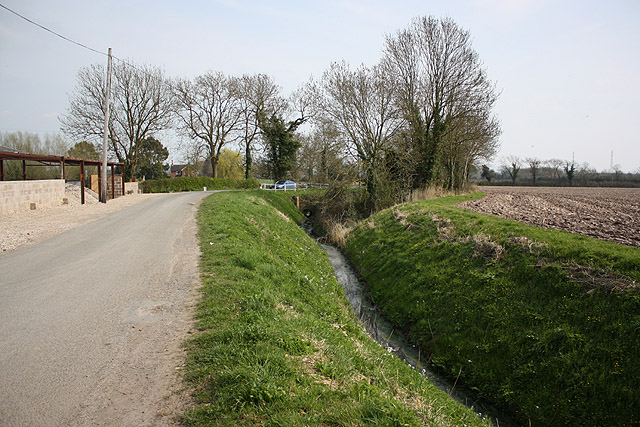I was four years old when I first became aware of the ditches on either side of our country road. I’ve never forgotten my childhood version of ditch trauma.
I was hanging out with an older brother to whom had been given the job of herding a group of cattle in the ditch on the side of the road in front of our farmyard. The cattle were able to find edible grass there where the last bits of moisture in the arid Kansas summer provided some green feed.
I was playing along the edge of the road when a county maintenance tractor with a ditch mower came right down the ditch we were using. I froze. I wasn’t supposed to go out onto the road. I was afraid to go down into the ditch. I froze in place.
The man driving the mower stopped his machine. “Boy, you’ve got to move! This thing will cut your legs off!” he yelled at me. I bolted to our yard, which was not far away. I rushed to the safety of my mother and told her, “That man said he was going to cut my legs off.”
I thought of that experience this morning as I was thinking of how much we seem to fear leaving our ideological ditches on either side of the road.
It seems we are losing the ability to confidently travel down the actual road—which is designed for effective forward movement. Instead, we are being trained to entrench ourselves in total opposition to most other humans and their ideas. We are learning that if we come up out of the ditch of radical thought on one side we are inexorably destined for the vile ditch on the other side.
This even happens when considering debatable church doctrines. It happens when comparing personal convictions. It is common in the tensions surrounding racism, human rights and freedoms, or political perspectives.
“We’re right. They’re wrong. The arguments on this show cannot be broken.” So goes the tagline on a daily, political-talk radio show. There is no road between the two ditches, and not the least regret for it.
I’ve heard the same sentiments in Sunday School discussions. I’ve felt the same arrogance in sermons on the radio, or even in a church publication. I’ve even been guilty of making such noises myself.
Fear of losing my position and sliding into the ditch on the other side of the road may, in fact, have some value. However, camping in the ditch on my side of the road is an equally-problematic solution. It simply provides me a false sense of confidence. It gives me the illusion of some control.
Is that why we seem to love being in the ditch on one, or another, side of the road? Yes, it’s easier to stay in the ditch than to negotiate and to compromise so that we can actually make good use of the road.
Self-confidence that is simply based on fear of something other is a worthless investment. Nothing is actually within our control, then.
Climbing up out of my ditch of protective platitudes and selective truth claims does not mean that I will be hopelessly doomed to the ignorance and evil that I think I see on the other side of road.
Can we find our way back onto the roadway and begin to make progress? Can we travel down the road without spending our energies screaming at the trolls in the ditches and under the bridges?
How do we do that? Is it all about choosing the “right” sources of information? Is it about wearing the right label of identity? Is it about getting all the facts just right?
No. It begins with a mental adjustment and a heart-level affirmation that it is the road we want to travel on. And that we will share the road with people with whom we don’t always agree.
It is the basic desire to respect others–as I would want to be respected. Respect means to hear and consider. Without respect, there is no way to speak the truth in love (an ideal we find in Scripture).
It means distancing ideologically from the outrage, the hatred, the screaming arrogance that seems to come from both the ditches—the permanent dwelling of those who define the world in terms of “enemies and allies.”
It means replacing fear with peace. It means cultivating a determination to make peace among people wherever possible and to confidently make progress down the actual road.
It means doing what we can to win our “enemies” over; not to merely conquer them.
And those of us who claim that we model our lives and our values after the life and the words of Jesus Christ can be leading the way. Is that how it appears to be?

I like your observation that we have difficulty moving forward (or anywhere) if we don’t meaningfully engage others. I suppose that’s my paraphrase. Thanks for sharing this Merle. It seems in this season, I need this reminder more than once!
Thanks for your thoughts Jeremy!